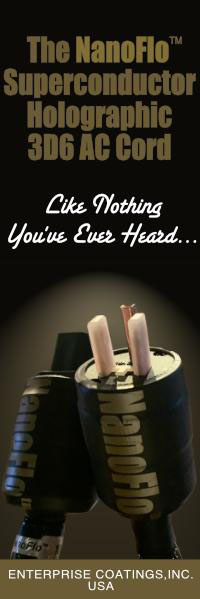Art Farmer & Milt Jackson
| Art Farmer & Milt Jackson |
| Jim Merod |
| October 1999 |
“Milt Jackson and Art Farmer were foxes in the chicken coop. They were direct and subtle simultaneously. Their art depended upon nuances and shading even as they dug in. You always heard years of jam-session schooling in the academy of Buck Clayton and Charlie Parker at the heart of their playing.”
And now Bags. Milt Jackson’s passing within one week of Art Farmer’s death leaves us with echoes of their somber dignity. Neither player can be thought of as an essentially “cheerful” musician. Both strove for an athletic sense of swing that expressed the urgency of the body’s innate power. Each exercised an inward, reflective lyric energy. The effect that both musicians shared was a combination of melodic clarity and covert lyrical tenacity.
Milt Jackson and Art Farmer were foxes in the chicken coop. They were direct and subtle simultaneously. Their art depended upon nuances and shading even as they dug in. You always heard years of jam-session schooling in the academy of Buck Clayton and Charlie Parker at the heart of their playing. They wore their jazz pedigree with grace but with unflagging contempt for half-efforts or vague musical thinking. Farmer sought what he sometimes called “the value of a single note”—a sublime loveliness that distilled itself within the weight of beautiful notational choices. Jackson’s musical temper evolved from the blues and from a gospel-inflected sense of lyrical rightness.
With Milt Jackson, “rightness” of tone and phrasing were akin to righteousness. Jackson was a melodic preacher. His approach to his art was always dignified and defined by rectitude. One often felt, in Milt Jackson’s presence, as if anger at the fundamental injustice of the world boiled, barely contained, beneath his dour countenance. Stories of his tongue-lashings are legendary. Tales of his exact, unspoken lessons in the blues or in the appropriate voicing for a ballad—rapt attention thereby earned on the surprised awareness of younger musicians—are equally legendary.
Art Farmer, a gentler man, was no less ferocious as a player. His strength resided in the fierce understatement that he sought from himself. On a bandstand, he could be cranky if colleagues did not exercise requisite accuracy with his charts. Farmer did not care if you agreed with his arrangements. He expected you to enter the songs he chose, and to exit, with solidarity for the spin he put on them. Art Farmer was a stickler for detail and yet he enjoyed the surprise of nuances that carried a honest relation to his music. He was generous to fellow musicians and spoke frequently of his unwavering appreciation for those, like Benny Golson and Dizzy Gillespie, who paved the way for him. He was sentimental about deceased contemporaries, such as his twin brother, Addison, and trumpeter Kenny Dorham.
Farmer found delight in memories of raucous companions, such as Ben Webster, who plagued himself (and taxed his friends) with explosive rowdiness. Nonetheless, throughout four decades of recording and traveling the world, nothing counted in Art Farmer’s life as much as music did. He enjoyed his few published attempts at verbal articulation of its meaning. But he knew that its meaning was untranslatable from sound to words. And so he repledged himself, again and again, to the art of enchantment. That is a word that Farmer seldom used, but it is a word that suggests the inner warmth of his musical touch.
Enchantment is a term that defines Art Farmer’s musical ambition. It was the nonrational surplus of his carefully rehearsed “logic of suggestive-ness.” Farmer’s trumpet work was clean and yet open, somewhat fuzzy at the tonal edges. His flugel playing was more meditative. It sought the intimate shadings of implied, unuttered musical ideas. In later years, his “flumpet” allowed him freedom to explore the range of his musical vocabulary on one instrument. Always, Farmer strove to leave things out. He hated bombast. He deplored clichés. When he felt that he had put too many notes inside the musical space he was working, he would shake his head at himself or speak softly after he came away from the stage and mutter that he would get it right the next set.
No doubt because of these self-scrutinizing traits that often mark the character of the most scrupulous artists in any field, Art Farmer charmed audiences as few such strict, unswerving musicians ever have. Farmer’s charm was immediate once he put his mouthpiece to his lips. He stood erect, his horn explicit with priapic pride. The notes he eased forward seemed to be a statement of his entire person. Art Farmer’s musical persona was a replica of his personal self: an intellect with heart, a warm if somewhat shy human envelope of soulful feeling uttering secret syllables from a calm and truthful mind.
Just months before his passing, Art Farmer toured California. His chops were off but his demeanor was sweet and true to form. At Yoshi’s, in Oakland, he had difficulty standing on the bandstand. As he sat, he nodded at younger colleagues who exercised the still-daunting gymnastics of be-bop classics. A week later, a long line of fans waited, one by one at the Neurosciences Institute in La Jolla, to have him sign an album or recount some moment of reverie. His countenance was happy, almost beatific. You could see, in his bearing, in their patient pleasure for a moment with a splendid visiting artist, that Art Farmer was no ordinary man.
If Milt Jackson was a smoldering preacher, Art Farmer was a shrewd professor. His playing was spare and his discourse was equally reserved. At moments one imagined Professor Farmer practicing a private form of Zen. His musical speech was the product of stoic form of unabashed romantic solitude. To know Art Farmer was to feel blessed by friendship from a man of unmistakable honesty and integrity. To hear him play on those nights when the stars lined up within the Zen heaven of his universe was to be transported to a personal place in which enchantment appeared as a brave and simple language spoken, as love is, between two people.
Thanks to “JAZZ NOW” Magazine
![]()
Don’t forget to bookmark us! (CTRL-D)
Stereo Times Masthead
Publisher/Founder
Clement Perry
Editor
Dave Thomas
Senior Editors
Frank Alles, Mike Girardi, Russell Lichter, Terry London, Moreno Mitchell, Paul Szabady, Bill Wells, Mike Wright, and Stephen Yan,
Current Contributors
David Abramson, Tim Barrall, Dave Allison, Ron Cook, Lewis Dardick, John Hoffman, Dan Secula, Don Shaulis, Greg Simmons, Eric Teh, Greg Voth, Richard Willie, Ed Van Winkle, Rob Dockery, Richard Doron, and Daveed Turek
Site Management Clement Perry
Ad Designer: Martin Perry





Be the first to comment on: Art Farmer & Milt Jackson